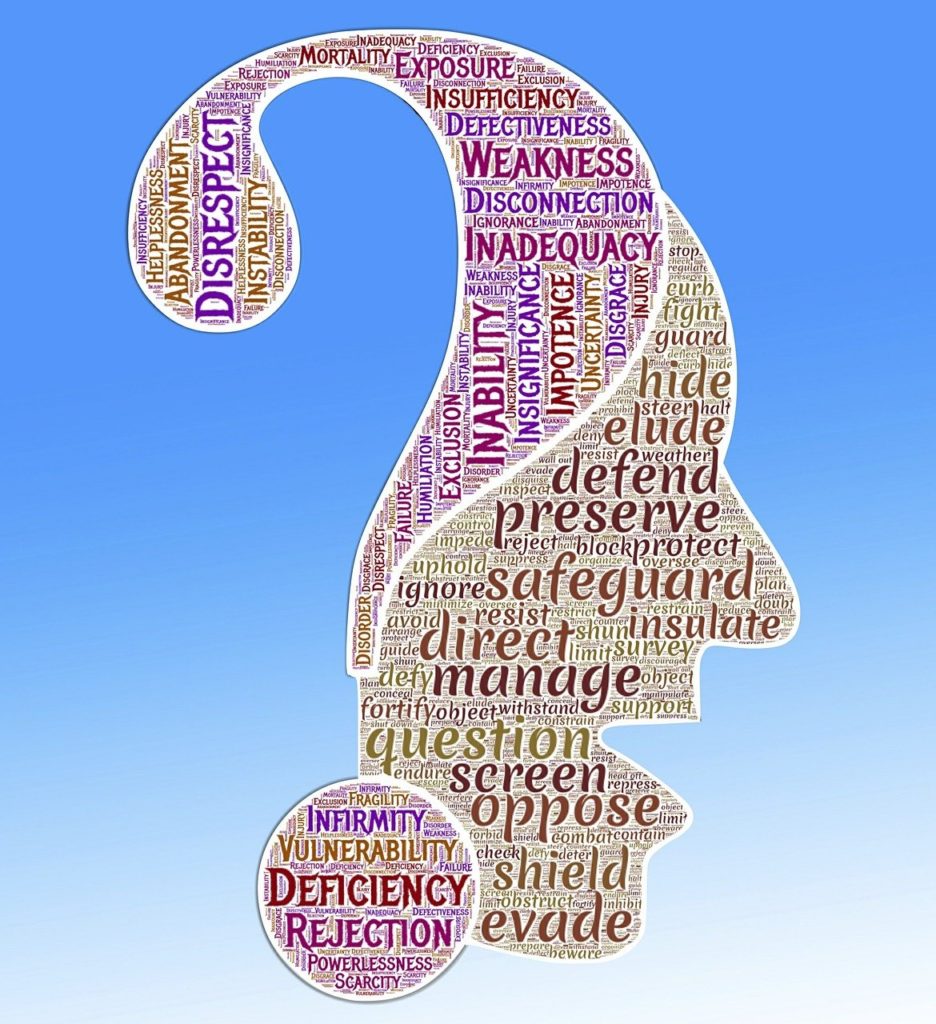
Actually, the very unintelligent may be the only people who have never experienced self-doubt. Their unawareness of the information they are lacking, enables them to proceed without concern, until they meet with disaster. Those who possess self-efficacy and belief in their ability to achieve their goals have experienced the self-doubt that prompts them to strive harder for perfection. They’ve experienced failure many times and have learned that success comes only from a succession of failures followed by unrelenting persistence.
Leonard da Vinci, the poster person for the title “polymath,” who achieved top status as an inventor, scientist and artist, suffered periods of procrastination and low self-esteem. Always striving for perfection, he seldom finished projects, as he sought ways to move incrementally closer to perfection. This supreme perfectionist who would become the model of the Renaissance man, recorded in his diary, “Tell me if I ever did a thing”. His self-doubt was part of his genius.
Prior to his inauguration as the first president of the United States, George Washington stated in a letter to the Supreme Court Chief of Justice John Rutledge, that he greatly appreciated the power that his countrymen wished to grant him, but feared that an equal amount of praise and encouragement directed towards him at that time could also come with the same measure of repercussion were he to fail. He ultimately succeeded in spectacular fashion and will continue to be regarded as one of the great founders of the United States.
Basketball legend, Michael Jordan, describing his route to success, observed:
I’ve missed more than 9,000 shots in my career. I’ve lost almost 300 games. Twenty-six times I’ve been trusted to take the game-winning shot and missed. I’ve failed over and over and over again in my life.
Yet, Jordan led the Chicago Bulls to six NBA Championships and is believed by many to have be the greatest basketball player the world has ever seen.
The quintessential inventor, Thomas Edison, when asked by a reporter, “How did it feel to fail 1,000 times?” replied, “I didn’t fail 1,000 times. The light bulb was an invention with 1,000 steps.”
Those who are highly successful reach self-efficacy through the recognition that failure is the route to success, if supported by an unrelenting energy and commitment. In fact, the Renzulli model of the gifted person suggests that extraordinary achievement requires three components: high intelligence, high creativity and strong task commitment. (see: https://www.intelligence-and-iq.com/what-separates-highly-intelligent-people-from-genius-people/)
In essence, self-doubt is a partner in discovery and a very important component as long as it is not so powerful that it undermines a strong task commitment. Those who succeed at extraordinary levels realize that each “apparent” failure is actually a learning opportunity that enables us to adjust or refine our next effort.
On those occasions when highly intelligent people become enamoured with their own success, they become vulnerable to what is called “Nobel disease.” Quite frequently, Nobel laureates or winners of other prestigious awards, make scientifically unjustified assertions within or outside their field of expertise. This cognitive trap, was described by Indian astrophysicist Subrahmanyan Chandrasekhar, who won the Nobel Prize in 1983.
These people [winners of prestigious awards] imagine afterward that the fact that they succeeded so triumphantly in one area means they have a special way of looking at science that must be right. But science doesn’t permit that. Nature has shown over and over again that the kinds of truth which underlie nature transcend the most powerful minds.
Indeed, intellectual humility, though it may masquerade as self-doubt, is the recognition that the world is extremely complicated, and the only route to success is through a progression of “temporary” mistakes. The chance of ultimate failure is ever-present, but without the effort and the self-doubts, failure is guaranteed.

Seeker syndrome is the art of failure and success, turning lead into gold as the universe turns at the moment with grace. The down will rise, the rise will reach down. To climb a mountain by falling they say is the hardest part, I say come down from the mountain is even harder from ascension. The gift of threshold is the giant, holding little bear.